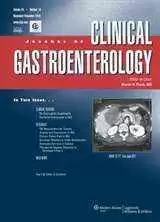Celiac.com 02/05/2010 - Collagenous sprue is classically understood as a disorder of the small intestinal mucosa marked by persistent diarrhea, severe malabsorption with multiple nutrient deficiencies, and progressive weight loss.
H. J. Freeman of the Department of Medicine, University of British Columbia Hospital, Vancouver, BC, Canada offers an update on collagenous sprue.
Celiac.com Sponsor (A12):
Patients with collagenous sprue typically show a severe to variably severe "flattened" mucosal biopsy lesion with distinctive sub-epithelial deposits in the lamina propria region. These deposits contain collagens, as demonstrated by both histochemical stains and ultrastructural studies.
Moreover, permanent disappearance of these deposits after resection of a localized colon cancer suggests that this disorder might actually involve a para-neoplastic morphologic marker of an occult malignancy.
In collagenous sprue cases, physicians often first consider a diagnosis of simple celiac disease, until the patient fails to respond to a gluten-free diet. Recent studies portray a close association between collagenous sprue and celiac disease, sometimes with concomitant T-cell enteropathy.
A number of studies demonstrate gastric and/or colonic associations with the unusual inflammatory mucosal process in collagenous sprue, which suggests that the condition may be more complex and have more varied contributing causes than presently understood.
Source: Open Original Shared Link







Recommended Comments
There are no comments to display.